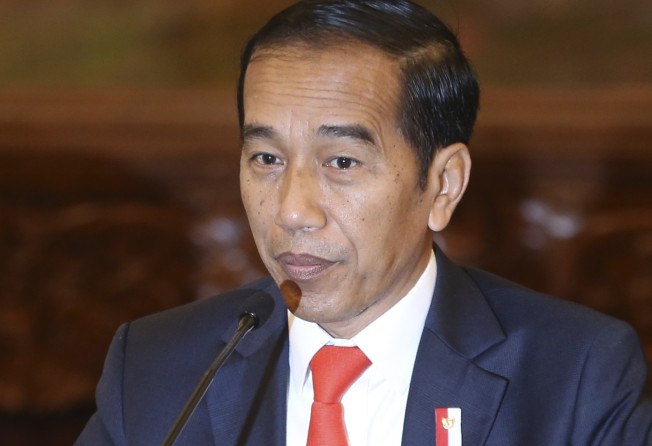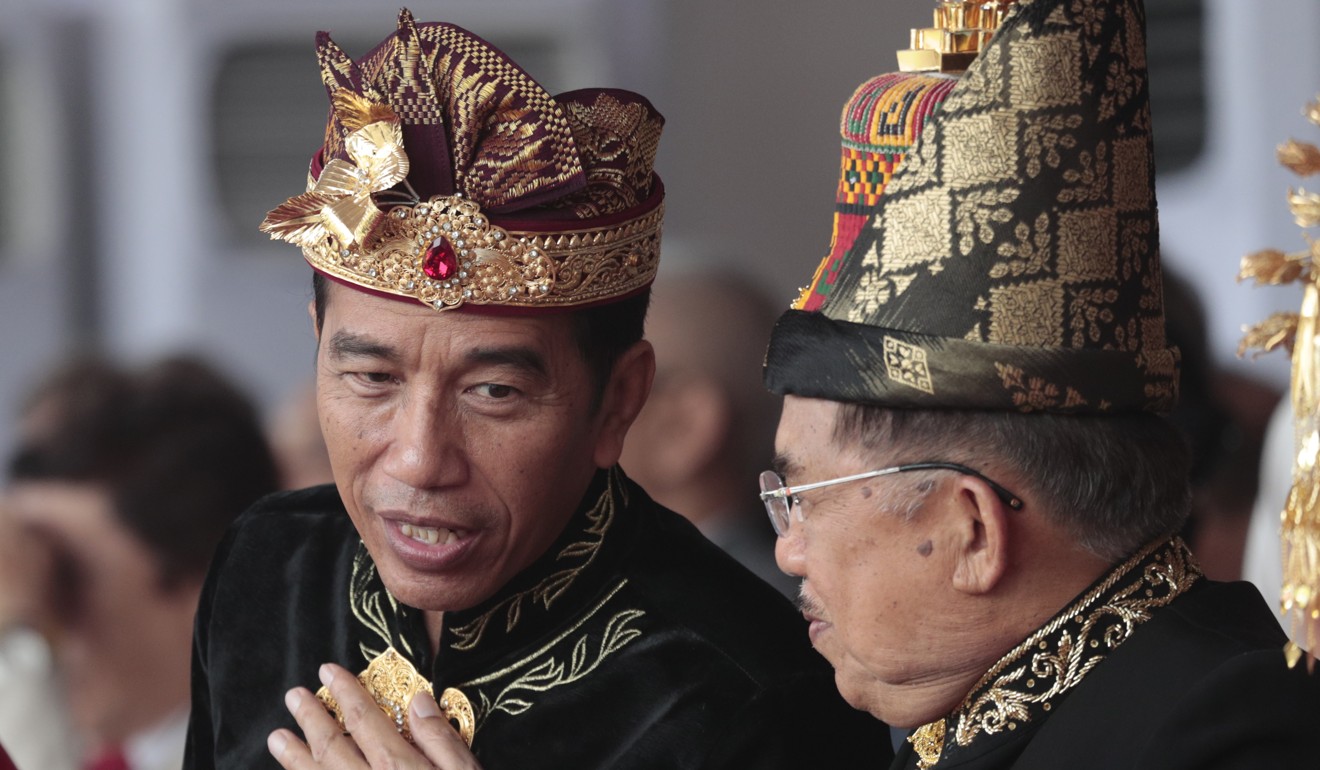Indonesians could soon be jailed for insulting the president, if colonial-era law is resurrected
- Lawmakers argue that Indonesia has contempt laws to protect people and state symbols such as the flag, but not President Joko Widodo
- Critics say the law is a sign of creeping encroachment on free speech

Indonesia is set to resurrect a colonial-era regulation that could lead to the imprisonment of people who insult the president, in a move critics say demonstrates the country’s creeping encroachment on free speech and which has been likened to Thailand’s lèse-majesté laws.
National legislators are later this month expected to approve amendments to the penal code that would criminalise contempt of the president and vice-president, as well as of the government, state agencies and the court.
The statute was a legacy of the 350-year Dutch colonial rule and was originally implemented to punish slander and curb discontent against the Dutch royal family. In 1946, a year after Indonesia became independent, the law was revised to protect the dignity of the president and vice-president instead. But it has been off the books since 2006, when the Constitutional Court deemed it was no longer relevant given the country was a democracy and practised the rule of law.
In explaining its reasoning for bringing back the statute, the government said it was “bizarre” if Indonesia had contempt laws to protect “ordinary people, the dead, our flag, national anthem, state symbols, officials, and head of state of our allies” but did not have one that covered the president.
“Maybe in Western countries, people have different views about their leaders, but in Indonesia, the people still have a strong respect for the president and vice-president,” the document to lawmakers said.
Critics said the attempt to reintroduce the statute showed democracy was deteriorating in Indonesia, which underwent a period of political reform after the downfall of authoritarian leader Suharto in 1998 but is now under pressure to pander to rising conservatism and identity politics. About 90 per cent of the country’s 271 million citizens are Muslim, but there are sizeable numbers of those of other religions.
Those opposing the change said the new statute could be misused to stifle dissent and media freedom, as well as to criminalise political rivals.
“The law to punish government critics is anti-democratic since the government received their mandate from the people,” said Anggara Suwahju, executive director at Jakarta-based legal think tank Institute for Criminal Justice Reform. “President Joko Widodo had the chance to review the draft penal code in 2014 when he was elected president for the first time, but he didn’t do it. We have provided a number of inputs to the government, but it seems like they were overlooked.”

The attempt to include the law in the penal code dated back to 2015, the year after Widodo, popularly known as Jokowi, was first elected. It was then rejected by opposition parties. But after Jokowi was re-elected with a strong mandate in April, the law made it into the final draft of the code last month. It proposes jail time of three and a half years for contempt against the president and vice-president, and four and a half years for spreading contemptuous content.
In reality, we are going to go back to colonial era-law despite it being 2019
The law was also tightened so that only a complaint from the president or vice-president can trigger an investigation, whereas the earlier version counted it as a general offence, which meant police could prosecute anyone deemed to have insulted the president.
With the political coalition backing Jokowi holding about 60 per cent of the 575 seats in parliament, the law is expected to be passed. Even Gerindra, the party of former general Prabowo Subianto, who lost the election to Jokowi, is expected to support the amendment.
“Many lawmakers are beholden to temporary political interests so they decided to pass a controversial law,” said Nelson Simamora, a lawyer at the Jakarta Legal Aid Institute (LBH). “We are actually aiming to update our penal code, which was passed in 1848 by the Dutch and is still being used to this day. In reality, we are going to go back to colonial era-law despite it being 2019.”
By LBH Jakarta’s estimate, the proposed new penal code contains dozens of vaguely-worded articles that could be used to ensnare any individual or group accused of coup, religious blasphemy, fake news, communism, and even non-marital cohabitation. The institute estimated that, if passed, the new penal code could boost prison overcrowding from 205 per cent to 300 per cent over capacity.
The century-old statute is also seen as similar to the lèse-majesté laws in Thailand and, recently, Cambodia, which criminalise insults against the king. But unlike these two countries, where royals largely serve as figureheads, Indonesia is led by an elected president, whose roles as head of state and head of government are inseparable. Most critics of the president attack his policies, and not the state itself, legal experts said.
Critics also noted that the statute revival shows a lack of legal obedience on the government’s part, as lawmakers should adhere to the Constitutional Court ruling before passing any legislation.
“The Constitutional Court is the sole interpreter of the constitution. House of Representatives does have the authority to create a law but the constitutional basis for [contempt of the president] law has been cancelled by the Constitutional Court in 2006,” said Nelson of LBH Jakarta. “The state will be in disarray if lawmakers don’t obey Constitutional Court rulings.”
Authorities have in recent years used a controversial information and electronic transactions law to jail or fine internet users who insulted Jokowi. In 2017, an Islamic school student in East Java was detained by the police after creating a meme that mocked several public figures, including Jokowi, while another student in North Sumatra was sent to prison for one and a half years and fined 10 million rupiah last year on the same charge. Most of these cases involved teens who said that they were only joking, but they were still charged with defamation.